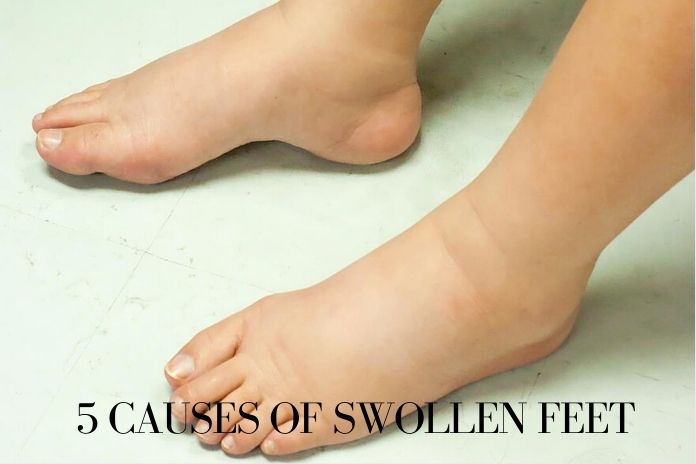When blood and fluids are not circulating well in the body, the feet are the first to show us symptoms. In some cases, it is simply a lack of exercise, pregnancy, or an improperly adjusted medication. But in other cases, swollen feet can hide more serious problems.
The feet do an incredible job of keeping us upright all day. The bones, muscles, tendons, and ligaments of each footwork with the ankles support our weight and enable us to walk, run, jump, and stand. But all these actions sometimes cause wear. Result: the feet swell.
When circulation to or from the feet slows down, blood begins to pool in the many blood vessels spread along with your toes, heels, and ankles. The reasons for this symptom are very varied. It could be pressure, inactivity, injury, or whatever. Some are serious, and others harmless.
In any case, take note of the symptoms and talk to your doctor, especially if the swelling lasts for several days, develops suddenly, only affects one foot, is accompanied by pain, and if the skin is discolored. Here are some reasons that may explain it.
Movement
When we don’t move enough, our feet suffer. Sitting for too long can reduce blood flow to that area of the body, causing swelling. Conversely, standing too long can limit muscle capacity in the legs and feet, slowing blood circulation. Try to take regular breaks to change position during the day.
The Pregnancy
The body produces more fluid than usual during pregnancy. In the third trimester of pregnancy, the weight of the uterus can add extra pressure and cause water retention in the legs and feet. If this part of the body tends to swell, it should return to its usual appearance after childbirth. But if the swelling is very bothersome, massage can provide relief.
A Blood Clot
One of your feet is swollen, but the other isn’t? You may be suffering from a blood clot. In this case, the swelling may be accompanied by other symptoms: the affected foot becomes hot and red, recalls the website Medical Daily. When a blood clot forms in a vein ( venous thrombosis or phlebitis ) or an artery (arterial thrombosis), it can break away from the wall where it formed and get lodged in the arteries supplying the lungs ( pulmonary embolism ) or those of the heart. See a doctor quickly to find solutions.
Medication
Swollen feet or ankles can be part of the side effects of some medications, including:
– nonsteroidal anti-inflammatory drugs,
– oral contraceptives,
– blood pressure medications,
– antidepressants,
– steroids,
– and some diabetes treatments.
A healthcare professional can help you find more suitable alternatives, change the dosage, or prescribe a diuretic.
Organ Problems
If some essential organs have trouble functioning properly, blood and fluids can build up in the veins and tissues. In the most severe cases, it may be heart failure, kidney disease, or liver disease. In this case, other parts of the body may also swell, such as the hands and face. A complete medical examination will make it possible to make an accurate diagnosis.
Also Read- WATER RETENTION: REBALANCE YOUR DIET WITH MICRONUTRITION

